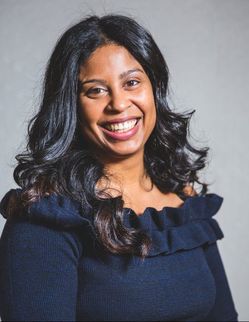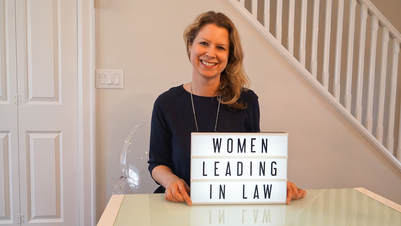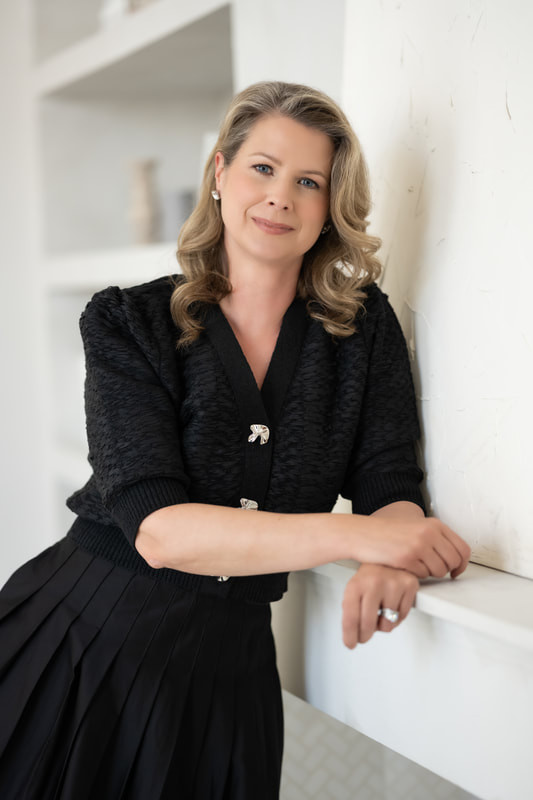 I first met the next lawyer in this series, Atrisha Lewis, when she was a first year associate at McCarthy Tétrault. Atrisha immediately struck me as an intelligent young woman who was going places in this profession. Now, several years later, she is an experienced trial lawyer, prolific writer, and a current DiverseCity Fellow with the CivicAction Leadership Foundation (just to name a few of her accomplishments). Learn how (after setting her sights on becoming a trial lawyer) Atrisha has done seven trials in her first five years of practice on Bay Street, the role that mentors and champions have played in Atrisha's career, and how to find your own mentors and champions: 1. Tell me a little about your practice or business. I am a trial lawyer. I love litigating all kinds of civil disputes, including commercial, intellectual property, defamation, and professional negligence disputes. 2. Why did you go to law school? I steadfastly held onto my dream of being a lawyer since I was seven years old. I am not sure what sparked my ambition, but I recall feelings of helplessness and powerlessness in my youth. I saw law as a career which would give me the tools I needed to ensure my voice was heard. Having practiced law for a number of years now, I must say I am impressed with the level of insight I had as a young girl. My career in law has been what I always dreamed it would be and more. 3. How did you get to where you are today? Design? Chance? Both? I subscribe to the old adage that success is preparation meets opportunity. I am where I am today because I made sure to create the most opportunities for success along the way. For example, I wanted to be a lawyer so I applied to every law school in Ontario and every law school that waived my application fee after completing my undergraduate degree. I wanted to be a Bay Street lawyer so I applied to 39 Bay Street law firms during on campus recruitment and attended every single open house or other event put on by a Bay Street law firm. Once I knew I wanted to be a trial lawyer, I sought out opportunities to work for the leading trial lawyers at my firm. Fortunately, many of these lawyers took an interest in me and mentored me along the way. I said yes to every single trial opportunity that came my way. Luckily, many of these trials actually proceeded (a rarity in the era of the vanishing trial), giving me the opportunity to get on my feet. 4. What is your most significant achievement? What are you proud of? As an increasingly senior litigator at a leading Bay Street firm, I now have a platform to be heard and I am most proud of myself for using my voice to pave the way for diverse lawyers behind me. I went to law school because I wanted to be heard and I am making sure that I am being heard loud and clear. Writing my recent article in Canadian Lawyer Magazine was not easy for many reasons, including that I have laid out my inner thoughts for all to read and judge. Thankfully, the reception has been overwhelmingly positive which has only reinforced for me that although risky and uncomfortable, the profession needs my voice. 5. What are some key challenges and opportunities for women in law? One of the biggest barriers for women is keeping pace with their male counterparts in respect of skills development. Law is an apprenticeship. No one is born a good cross-examiner or talented litigation strategist. These skills are learned by observing excellent advocates at work and more importantly, by doing. Getting the opportunities to “do” is not easy in Big Law when the stakes of a case are high. The challenge for many women is finding mentors and champions who are willing to put themselves on the line so that you can learn. For example, my first significant witness at a trial was an expert cross-examination for a medical negligence trial. Tom Sutton, litigation partner at McCarthy Tétrault, generously let me cross-examine the expert although if I messed up, he would wear our loss as the lead counsel. For my second expert cross-examination at a trial, Geoff Hall, another litigation partner at McCarthy Tétrault, generously let me cross-examine the one and only expert witness in a case where the Plaintiff was claiming $25 million. The Sunday before my cross-examination, Geoff patiently pretended to be the expert I was to cross-examine while I did a six-hour mock run-through. Sarit Batner, a preeminent litigator and a female partner at McCarthy Tétrault, and I have done three trials together. Each time, Sarit has provided me with real-time feedback on my trial skills. I have honed my cross-examination skills because lawyers like Tom, Geoff and Sarit have been extremely generous. To truly develop your skills, you will need mentors and champions to invest in you, often at a significant personal cost. Cultivating those kinds of relationships, which are critical to your success as a litigator, has proven to be much more difficult for women than it is for men, for reasons both known (e.g. unconscious bias) and unknown. The challenge for women is that gaps in development get amplified quickly in law. For instance, I have now done seven Superior Court trials in my first five years of practice, which is an excellent stat for a civil litigator. I am now ahead of my year of call when it comes to trial experience, so guess who will get the next trial brief? Luckily, I am benefiting from the increasing experience gulf, but many women are on the wrong side of the experience equation. 6. What advice would you give a woman starting her legal career? I have two pieces of advice for women starting their legal careers. First, always say yes. In the first few years, building experience and skills is so fundamental (see above). Often times saying yes is personally uncomfortable (e.g. how can I possibly find the time?), but I have never regretted saying yes. My second piece of advice for women is to unapologetically insert yourself into the situations you want to be in. For instance, although Geoff Hall is an important mentor and champion of mine, the relationship was cultivated by me actively pursuing it. Once I discovered he arrived at the office every day at 7:30 a.m. , I stopped by his office in the morning to discuss my files and seek his advice. Over time we developed a professional relationship and he began investing in my career. ---------- Thank you Atrisha for your wonderful insight and advice! ICYMI: Previous posts profiled Vandana Sood, Kathryn Manning, Kim Hawkins, Kyla Lee, and Eva Chan. Sign up to have these profiles sent directly to your email address and stay tuned for the next post soon! The "Women Leading in Law" series focuses on good news stories and highlights amazing women succeeding in the legal profession. Each post includes the profiled lawyer's answers to six questions. Prepare to be inspired!
1 Comment
I am an associate with CASA - Columbus Athletic & Social Association. If you go to our website cccasa.ca, you will see we have been involved in a political battle over the last 12 months involving several hundred million dollars. We have won, at least for the time being, against some very large well funded organizations, now we need to move to the next phase which involves litigation. We are seeking a young, smart lawyer, hungry for clients who will be able to work within our funding capabilities to commence litigation. We have 3,600 supporters who are contributing to our war chest. Many are entrepreneurs who have a need from time to time for legal services. Interested parties please contact me at casa@cccasa.ca
Reply
Your comment will be posted after it is approved.
Leave a Reply. |
Erin C. Cowling is a former freelance lawyer, entrepreneur, business and career consultant, speaker, writer and CEO and Founder of Flex Legal Network Inc., a network of freelance lawyers.
Categories
All
Archives
December 2022
|
|
(C) 2014-2024 Cowling Legal. All rights reserved.
|
Please note I am not currently practicing law.
Information on this website does not constitute legal advice and is for informational purposes only. Accessing or using this website does not create a solicitor-client relationship. See website Terms of Use/Privacy Policy. info@cowlinglegal.com
3080 Yonge Street, Suite 6060 Toronto,ON M4N 3N1 (appointment only) |







 RSS Feed
RSS Feed
